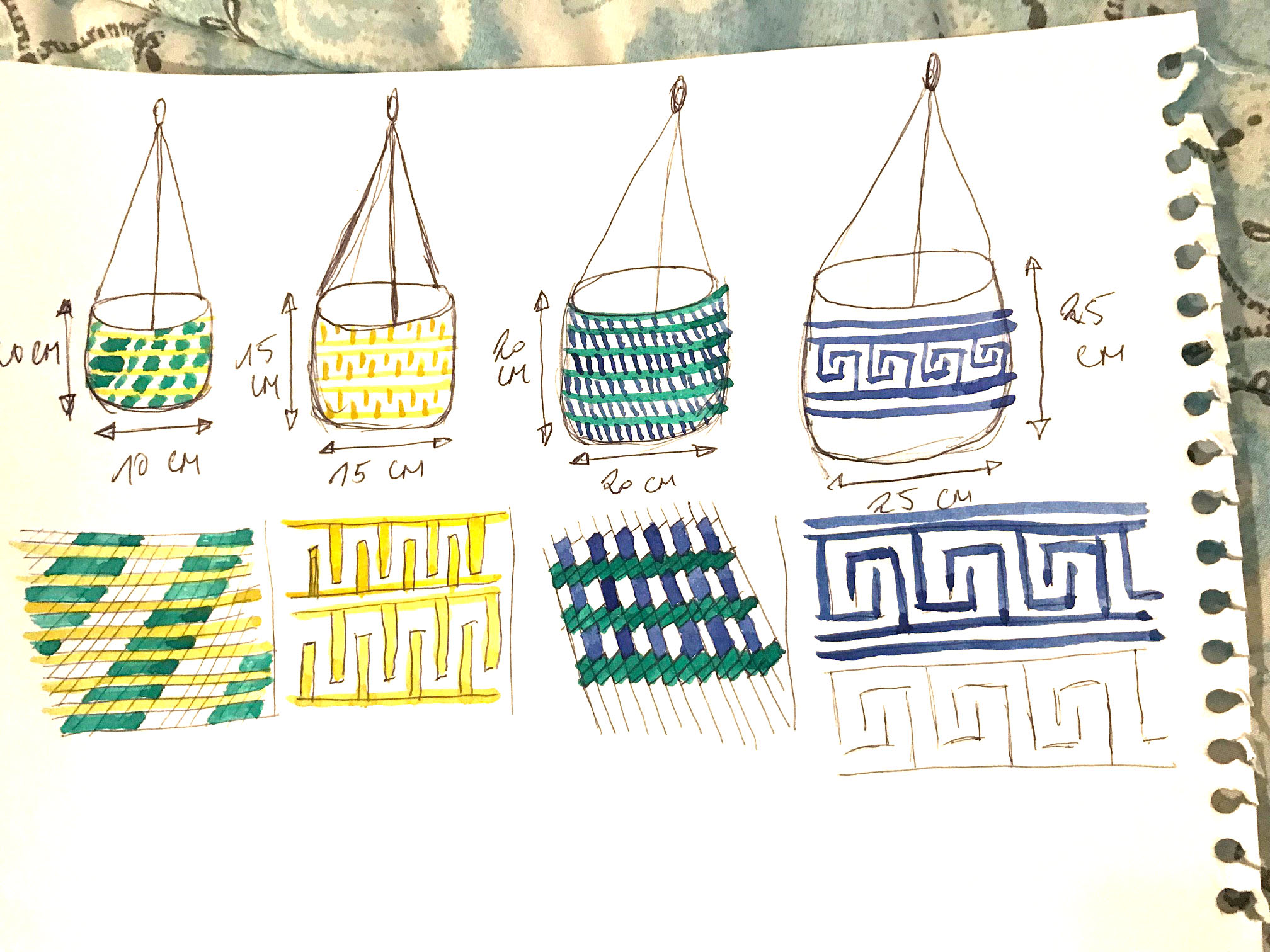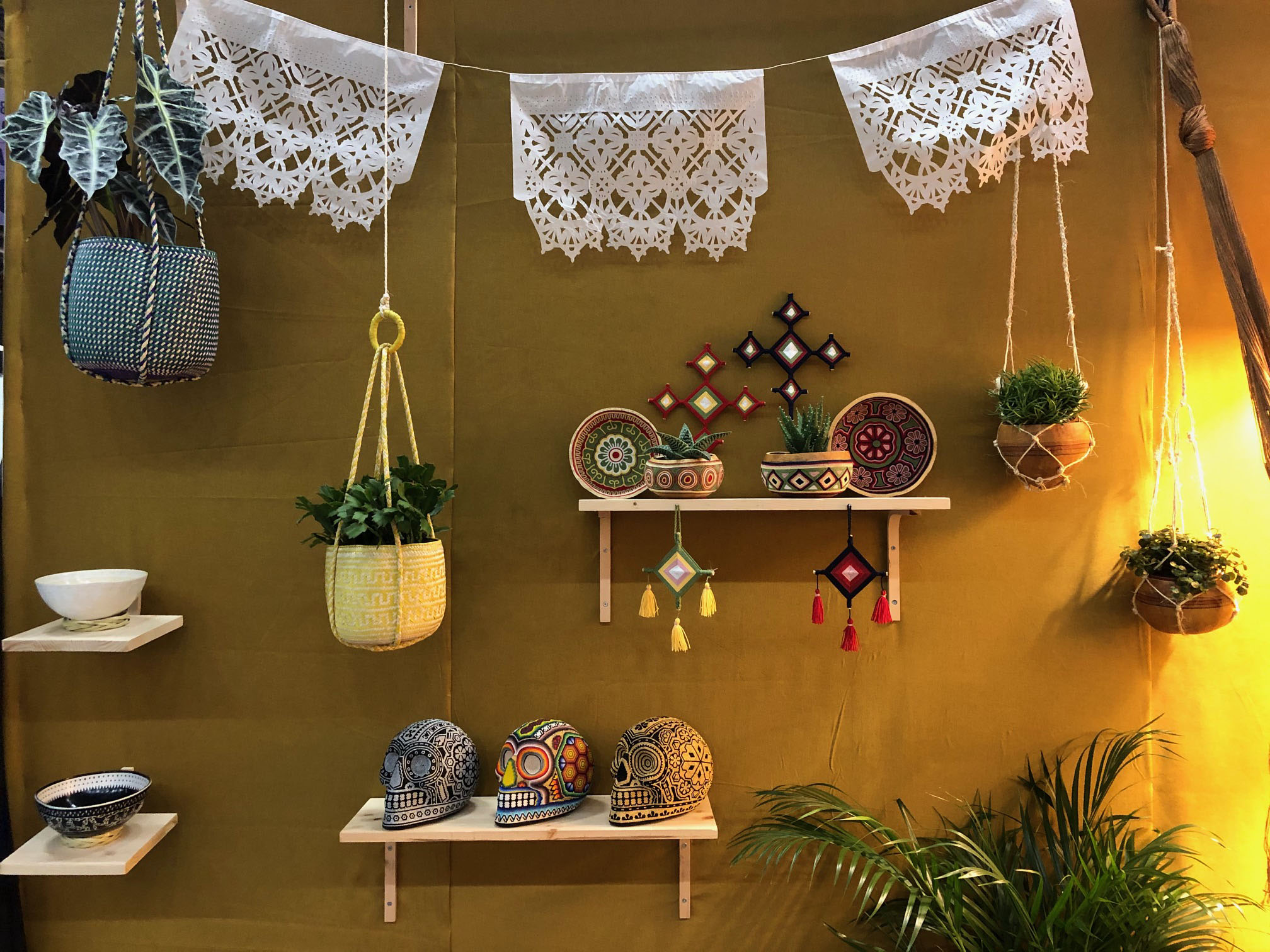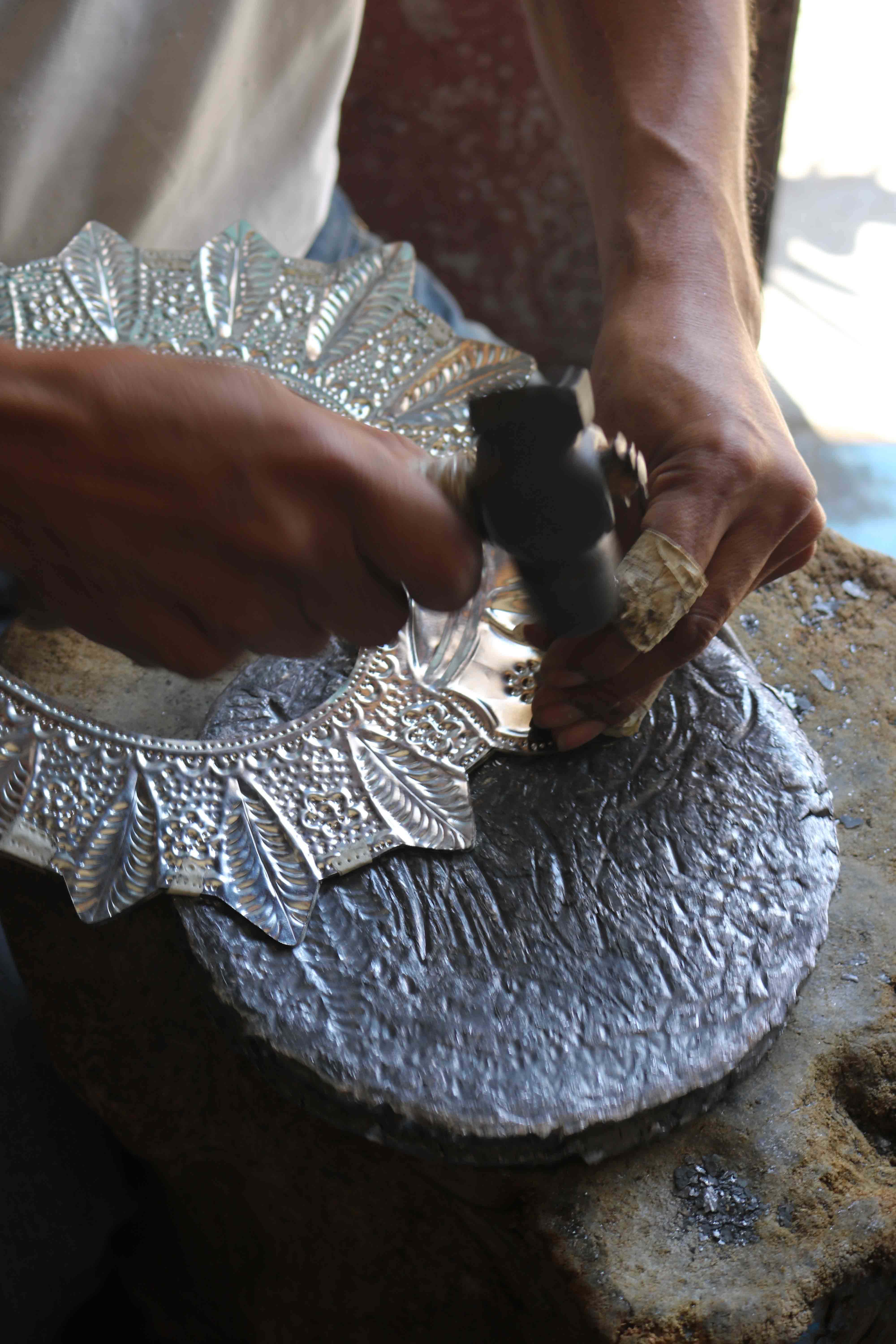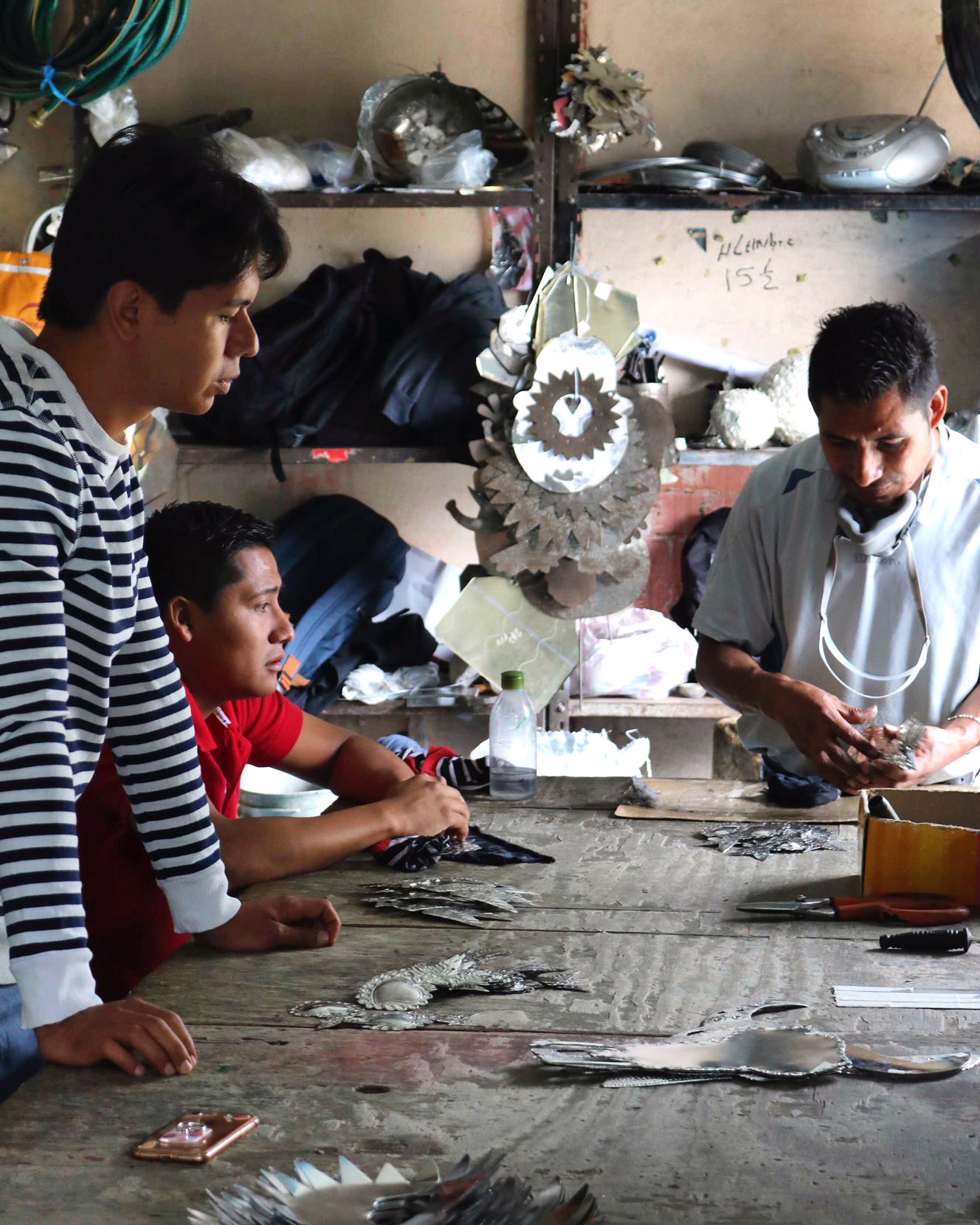Our project has been running for five years now!
Ariane, from the south of France, worked several years with Mexican NGO’s that seek to improve community development and defend human rights and for the environmental and sustainable development program in UNDP. Fascinated by the cultural diversity of the country, from the very first time in Mexico.
Jonathan, from Puebla, Mexico, with a master’s degree in Heritage Teaching worked in middle and high school raising awareness about cultural diversity in Mexico.
We first met in 2008, but it wasn’t until 2014 that we had the idea to join forces and create a project selling Mexican handicrafts and promoting the community’s cultural diversity. Our project is a blend of our professional skills and our desire to promote Mexico’s multiculturalism through fair trade.
We decided to call our French/Mexican decorating brand P.I. Project referring to the Intangible Heritage (Patrimonio Inmaterial in Spanish / Patrimoine Immatériel in French) . We partner with artisans from Mexico for the design of artisanal pieces with history and great cultural value.
We spend our time between Puebla and Marseille, but we travel a lot. In Mexico the best way to develop our project is to meet the artisans and understand their passion, their history and their craft skills. In France we distribute and promote craft products, we want to distance ourselves from the clichés around “Mexican decoration” that is the common perception in Europe, and highlight the knowledge and techniques involved in traditional craftsmanship.
Today in Mexico we're facing the fact that most of these ancestral traditions are slowly fading away over the years. Our effort to promote them and offer a fair price to the craftspeople is the first step to encourage also the young generations to keep on doing what older generations have been transmitting.
We are now working with artisans from the heart of the country: Oaxaca, Puebla, Hidalgo, Guerrero and Tlaxcala, but also from the Caribbean and the Northern Mountains. We have the intention to expand our artisan network across the entire Mexican territory. We work with single artisans, families, young collectives and entire communities.
We know all of the craftspeople we work with personally and we have become very close to them. The initial aim of our project is to establish monthly production, a sign of economic stability, and to buy their goods at a price that is set by them. We aim for an ethical, transparent approach, each craftsperson signs each piece of work. It is a real source of pride for them to know that their creations are going to be sold outside their own communities.
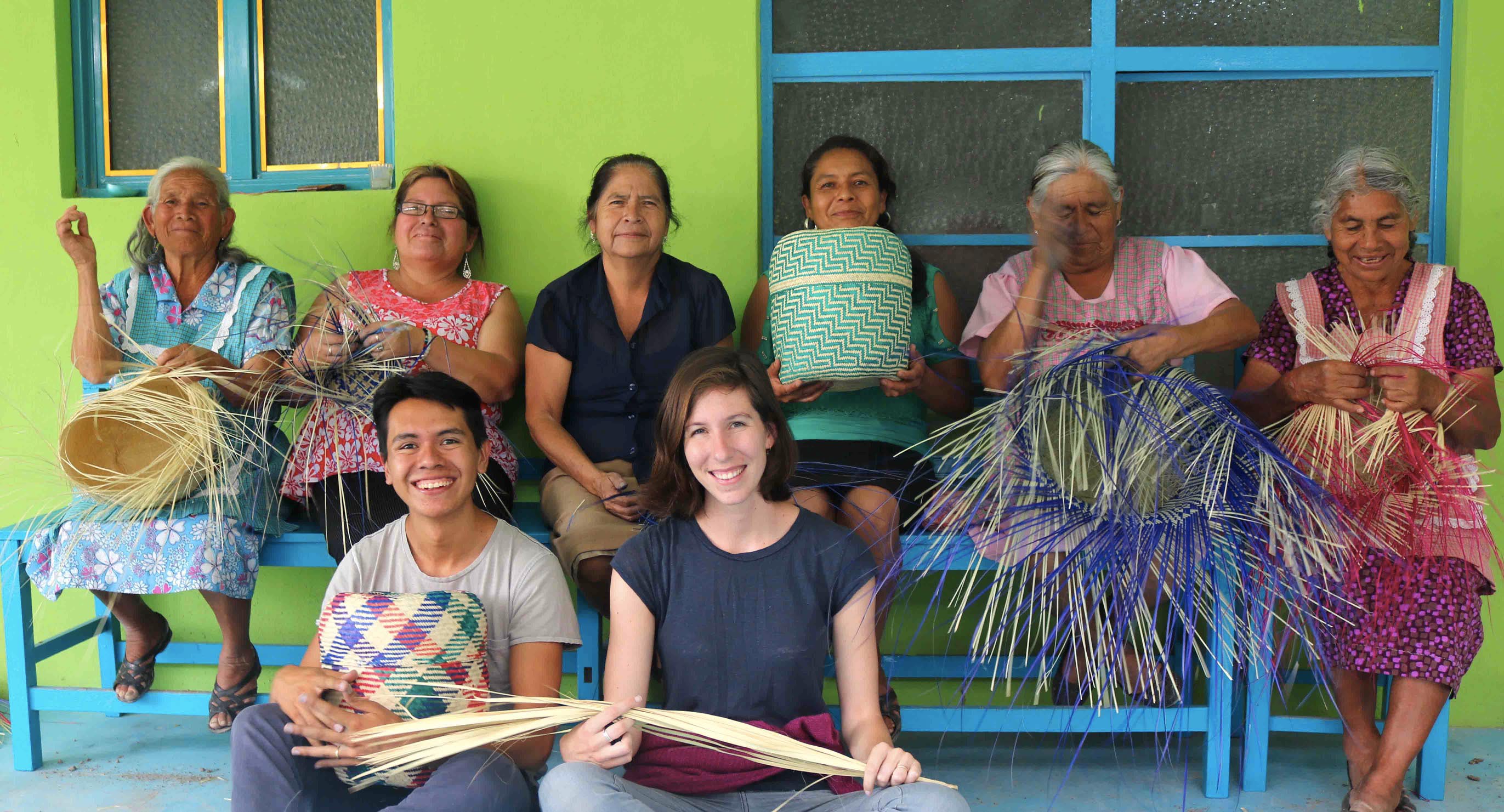
We really emphasize quality and skill. Each piece of work takes hours to make - hours of learning, hours of handing skills down through the generations, hours spent trying and sometimes failing to make something. We are not in a state of overproduction and the socio-economic impact on each community as a result of their sales is of enormous importance to us.
The preservation of Mexico’s cultural heritage, which of course extends far beyond ancestral skills, is an essential element in maintaining cultural diversity when faced with the phenomenon of globalisation. What is more, it also makes the development of intercultural dialog and exchange possible. But if this heritage includes ancient traditions from the past, we mustn’t forget that it is also a living heritage because it includes contemporary rural and urban practices, which are specific to each different community, be they indigenous or not. The idea behind the project is to offer a range of crafts that represent the country’s current diversity and it is this diversity that explains why some skills have stayed the same for decades and others have evolved with the arrival of new raw materials and new requirements.
Knowledge is alive when tradition is continuously recreated, but also reconstructed and renewed when interacting with the Other without losing its own essence. Each artisan keeps inside himself a creative spirit as well as a curiosity ready to experience new colors, new shapes, new uses…
Artisans are also very open minded when it comes to create new objects using their knowledge and skills. For each idea of prototype the artisans has responded to the challenge with an impressive range of work, combining technical expertise and imaginative power, exploring new forms and styles.
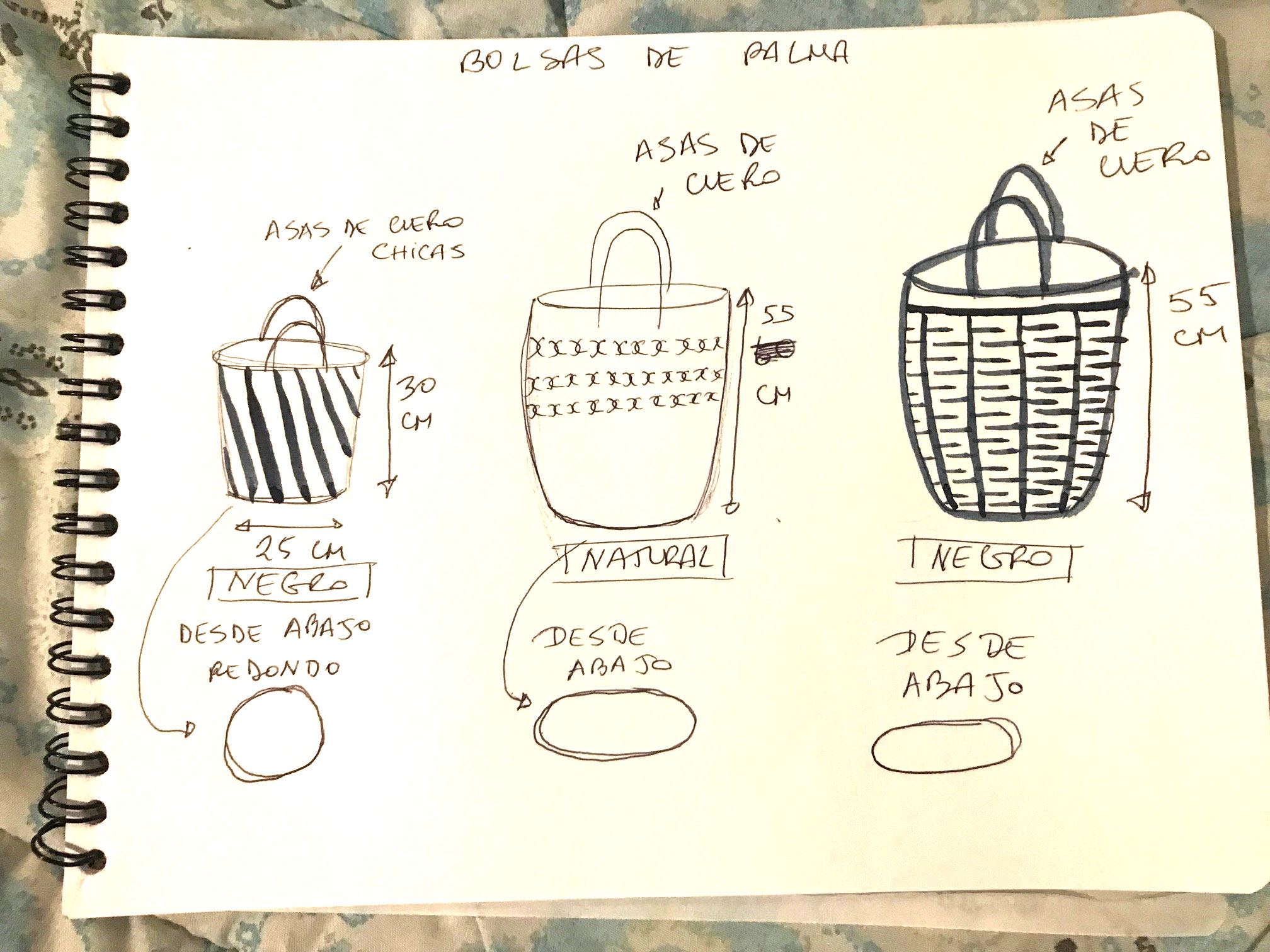
These last years we’ve been trying not only to curate the diversity but also to encourage our artisans suggesting new ideas and listening to their owns. In this creative dialogue, new pieces have seen the light of day thanks to the dynamic and living nature of artisan's knowledge. We hope this project will raise awareness of the fragility of intangible heritage and the need to resist the globalized way of consumption.


